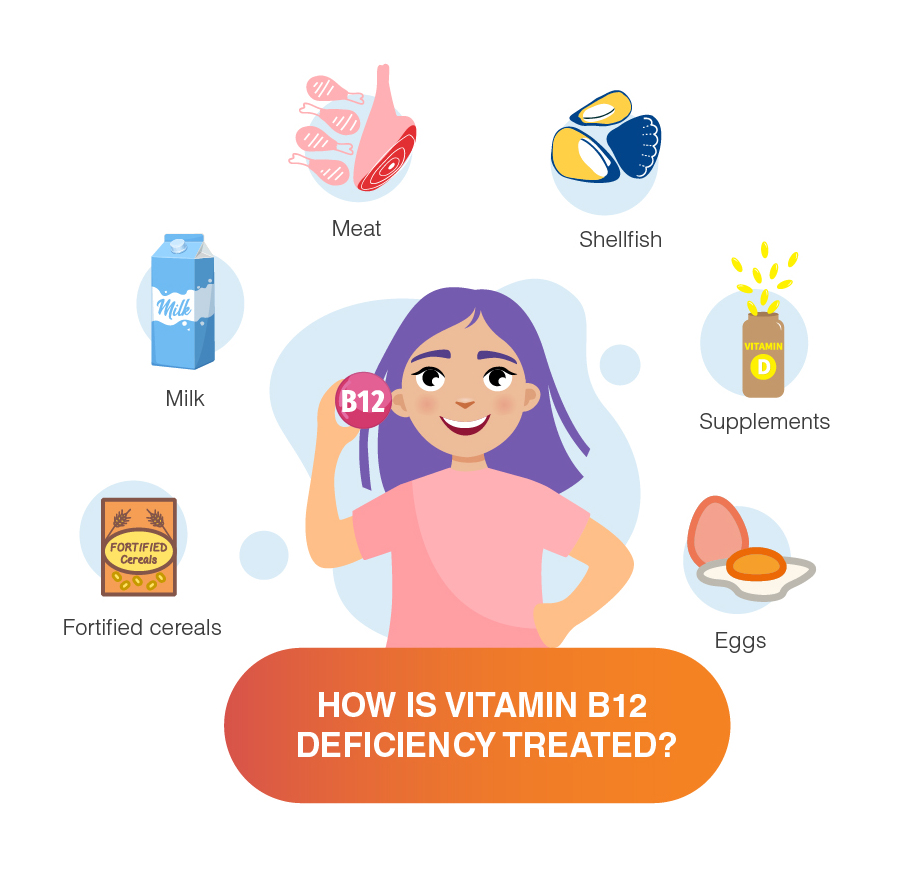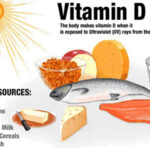Vitamin B12, or cobalamin, is an essential water-soluble vitamin vital for red blood cell formation, neurological function, and DNA synthesis. Deficiency in this micronutrient can lead to irreversible neurological damage, megaloblastic anemia, and significant functional impairments if not addressed promptly. We present a thorough, evidence-driven guide on the prevention of vitamin B12 deficiency, detailing its causes, risk factors, preventative strategies, and population-specific recommendations.

Understanding Vitamin B12 and Its Biological Role
Vitamin B12 is unique among vitamins due to its complex absorption mechanism and its exclusive presence in animal-derived foods. It serves three primary physiological roles:
- Erythropoiesis: Aids in the formation and maturation of red blood cells.
- Neurological Function: Maintains myelin sheath integrity and neurotransmitter synthesis.
- DNA Synthesis: Functions as a cofactor for methionine synthase and methylmalonyl-CoA mutase.
Inadequate intake or impaired absorption results in deficiency states with hematologic and neurologic manifestations.
Identifying the Risk Factors for Vitamin B12 Deficiency
Dietary Insufficiency
- Vegan and vegetarian diets lack natural sources of B12, making individuals at high risk.
- Elderly populations often have diminished dietary intake or reduced gastric acid secretion.
Malabsorption Conditions
- Pernicious anemia: Autoimmune destruction of intrinsic factor-producing gastric cells.
- Atrophic gastritis and H. pylori infection reduce gastric acidity, impairing B12 release.
- Post-bariatric surgery, especially gastric bypass, limits intrinsic factor interaction.
- Chronic alcohol consumption and pancreatic insufficiency affect absorption.
Medications
- Proton pump inhibitors (PPIs) and H2 blockers reduce stomach acid, limiting B12 liberation.
- Metformin, commonly prescribed for type 2 diabetes, interferes with B12 uptake at the ileum.
Early Signs and Symptoms to Monitor
Recognizing subclinical and early clinical signs of deficiency is crucial in prevention:
- Fatigue, weakness, and lightheadedness
- Tingling or numbness in extremities
- Memory issues and difficulty concentrating
- Glossitis, mouth ulcers, and pale skin
- Mood disturbances such as irritability or depression
Prompt identification facilitates early intervention before permanent damage occurs.
Prevention Strategies Through Dietary Optimization
Natural Dietary Sources of Vitamin B12
The most effective way to prevent deficiency is through regular intake of B12-rich foods, including:
- Beef liver and clams: Among the richest natural sources
- Eggs, dairy products, and poultry
- Fish such as salmon, trout, and tuna
Fortified Foods
For vegetarians and vegans:
- Breakfast cereals, plant-based milks, and nutritional yeast often contain added B12
- Ensure label verification for cyanocobalamin or methylcobalamin content
A daily intake of 2.4 mcg (micrograms) is recommended for adults, with higher needs in pregnancy and lactation.
Supplementation for At-Risk Groups
Oral Supplements
- Cyanocobalamin is the most stable and commonly used form
- Methylcobalamin may be preferred in cases involving neurological symptoms
- Daily dosages ranging from 250–500 mcg are effective for maintenance
Intramuscular Injections
Indicated when oral absorption is compromised:
- Initial loading dose: 1,000 mcg intramuscularly weekly for 4–6 weeks
- Maintenance: Monthly injections or high-dose oral therapy if absorption permits
High-Risk Groups Requiring Supplementation
- Vegans and vegetarians
- Patients post-gastric surgery
- Elderly individuals
- People with gastrointestinal disorders (e.g., Crohn’s, celiac disease)
Monitoring and Screening Protocols
Laboratory Testing
Routine testing should be considered for at-risk groups and includes:
- Serum vitamin B12 levels
- Methylmalonic acid (MMA) and homocysteine: Elevated in early deficiency
- Complete blood count (CBC): Macrocytic anemia with hypersegmented neutrophils
Screening Recommendations
- Annual testing for elderly and those with gastrointestinal or endocrine disorders
- Pregnant women and vegans should be monitored regularly during prenatal care
Public Health and Preventive Education
Awareness Campaigns
- Community education on symptoms, risk factors, and nutritional sources
- Health promotion in plant-based lifestyle communities and among the elderly
Food Fortification Policies
- Government-mandated fortification of staple foods in countries with high deficiency prevalence
- Encourage industries to clearly label B12 content in fortified foods
Special Considerations for Vulnerable Populations
Infants and Children
- Exclusively breastfed infants of vegan mothers are at high risk
- Pediatric B12 supplementation should be administered under medical guidance
Pregnant and Lactating Women
- Increased demand during pregnancy necessitates prenatal supplements
- Deficiency during gestation linked to neural tube defects and developmental delays
Preventing vitamin B12 deficiency is achievable through a comprehensive approach that combines dietary education, strategic supplementation, regular screening, and targeted intervention for high-risk populations. Recognizing early warning signs, ensuring adequate intake from reliable sources, and implementing routine laboratory testing are essential to safeguarding neurological and hematological health. Adopting a preventive stance not only reduces the burden of disease but also enhances overall well-being across all age groups.

